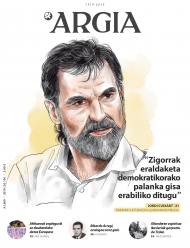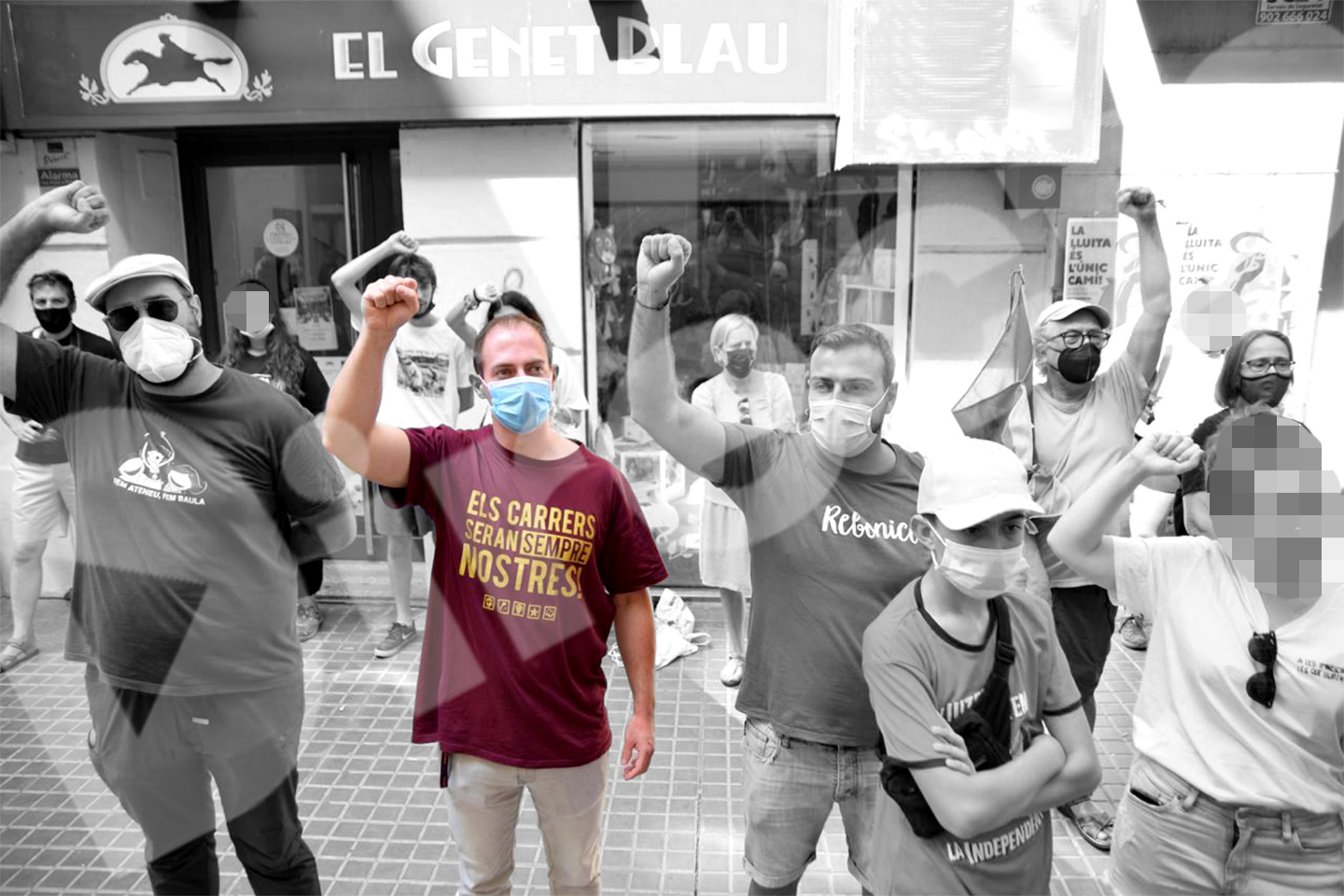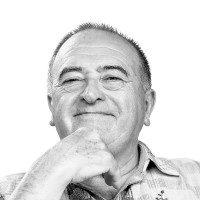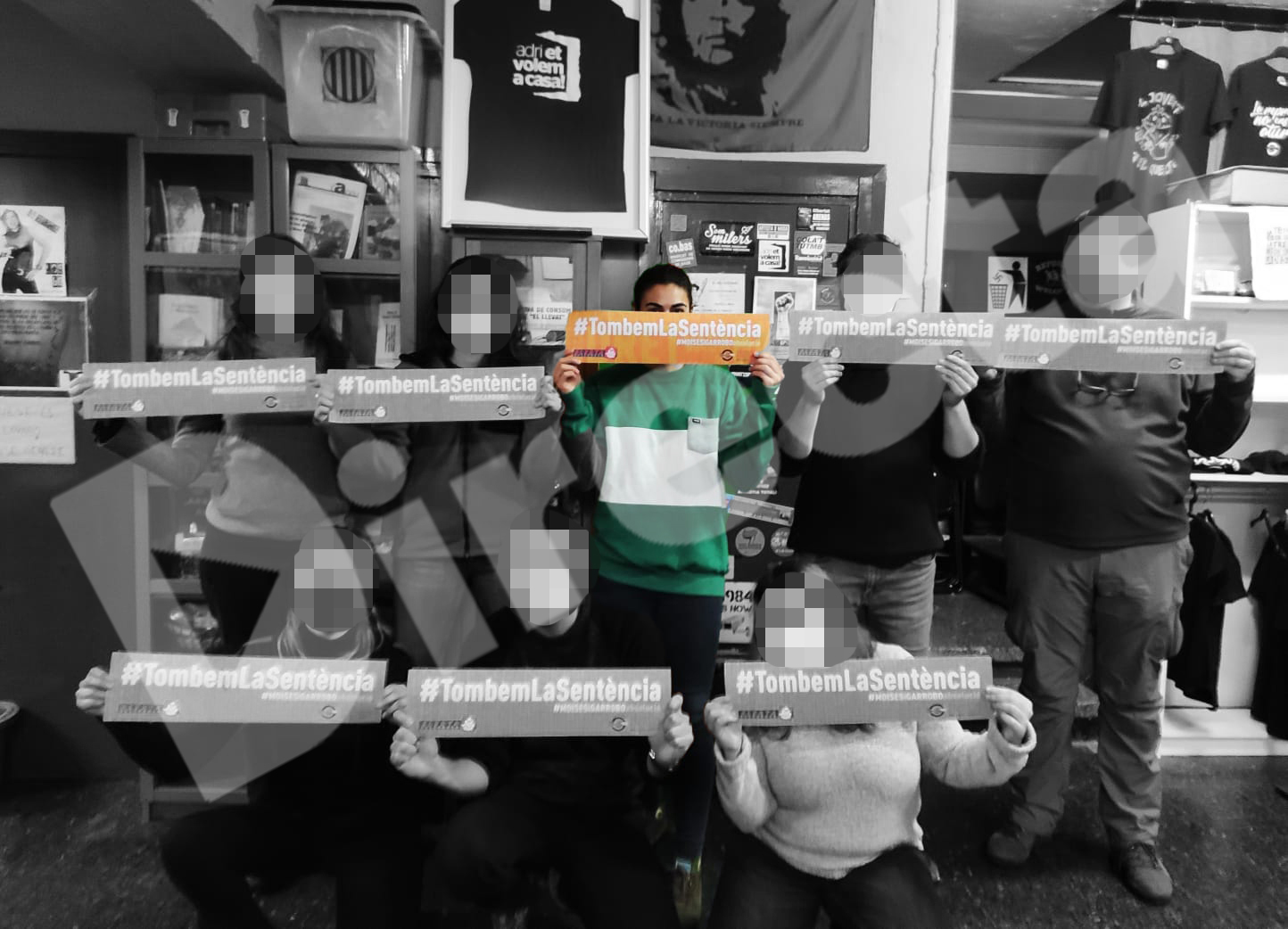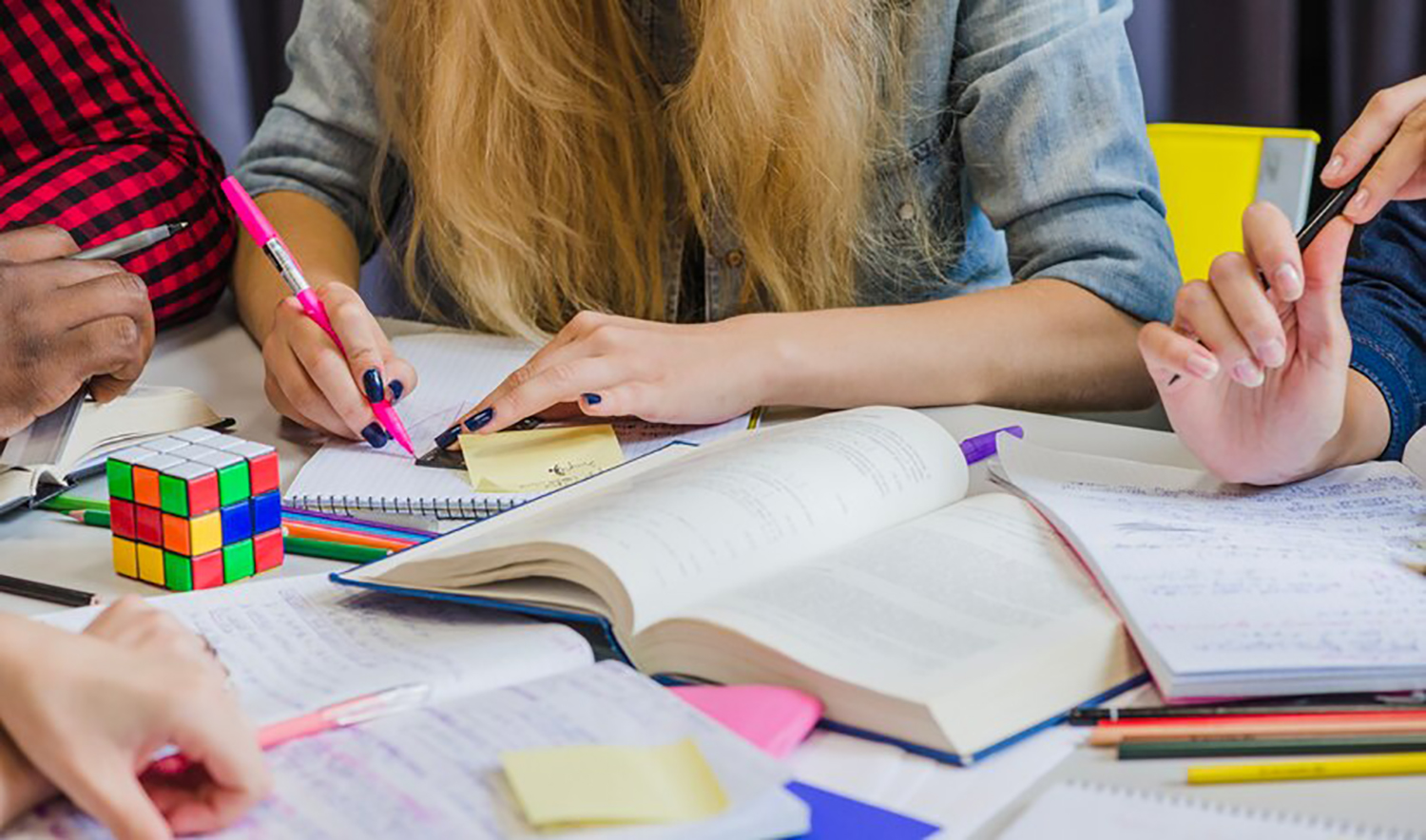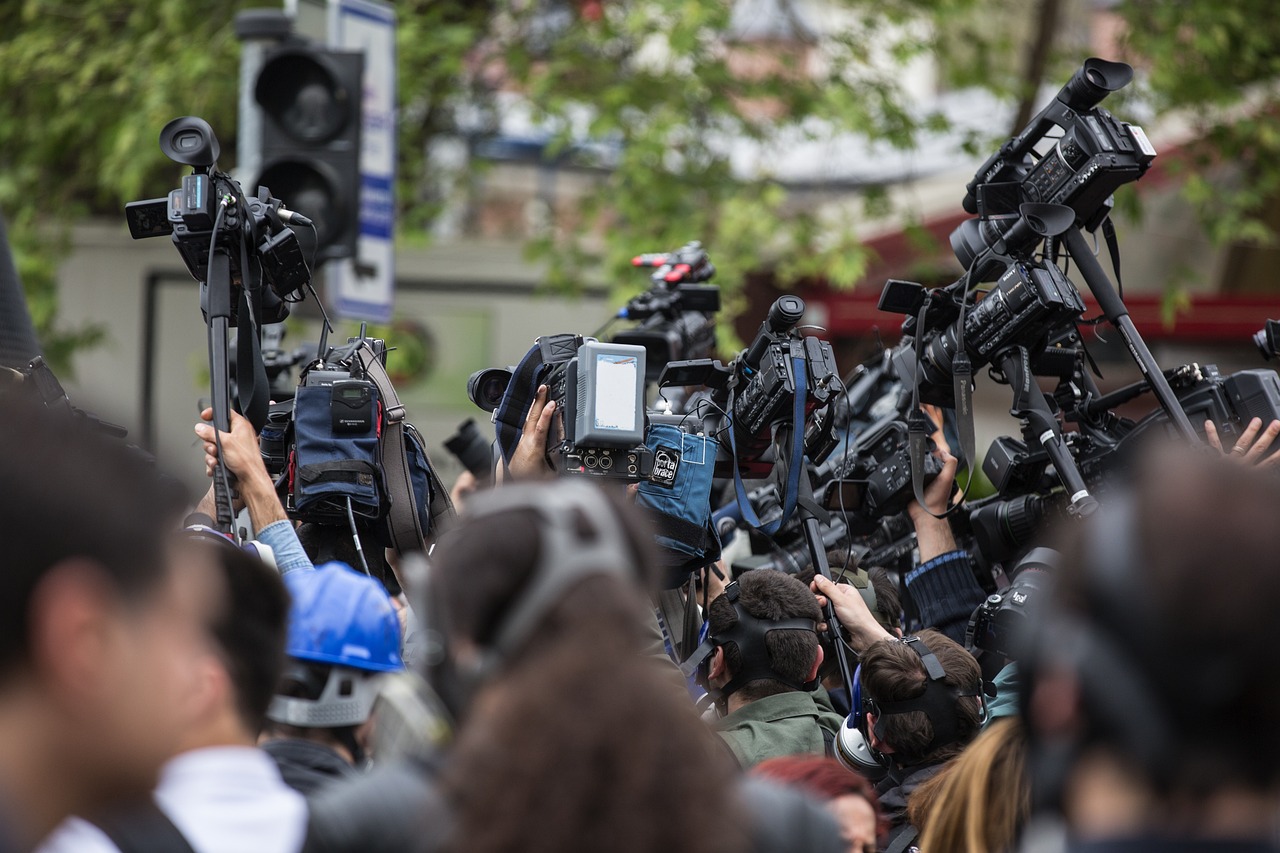"We have no reason to expect sanctions of less than ten years"
- If you have to choose a book, choose Désobéir from Frédéric Gros. Now, when you think about a song, Esperança de Txarango comes to mind. On the occasion of September 11, he recalled the film No by Pablo Larraín, on the 1988 Chilean plebiscite. Marina Garcés helps you think and, as far as poetry is concerned, Elogi de viure (Elogio de la vida), by Joan Maragall, is nailed. Nothing is useless for Jordi Cuixart, who has been in pre-trial detention for almost two years (Santa Perpètua de Mogoda, 1975). This interview is a comprehensive summary of the one carried out by La Réplique de Catalunya and translated by Maria Colera.
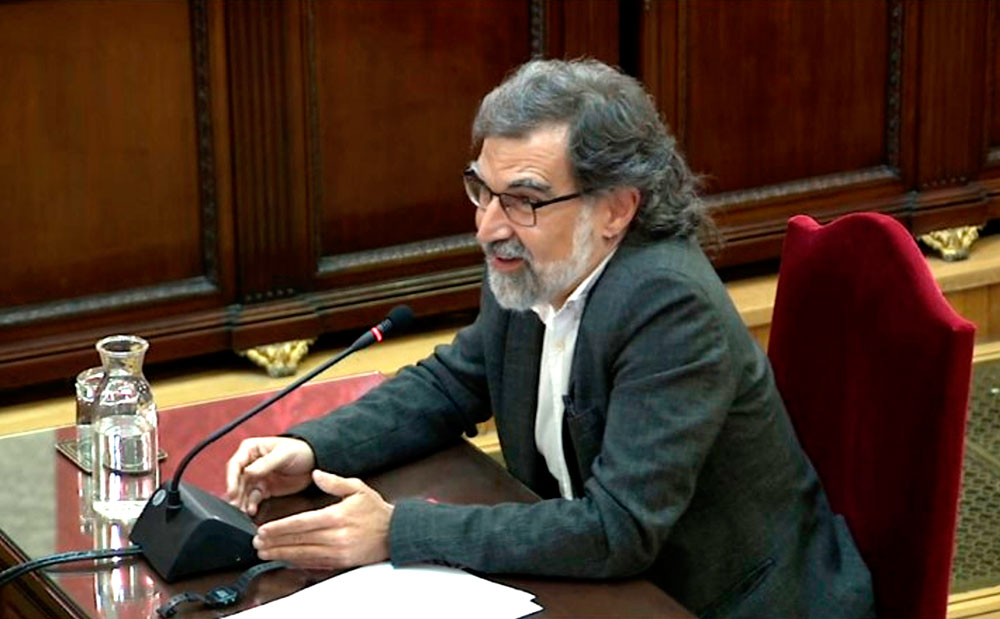
There is a clear slogan from his words: that prison cannot have any fighting limit and, therefore, since he is in prison he has not lost time, but has won. In addition to writing Ho tornarem a fer (We will do it again) and editing a book on prison removal together with Iñaki Rivera and the Sirecovi project, he is now preparing a new book on the right of prisoners to participate actively in the birth of their children. On 23 September she became a father again. The questions to the president of Òmnium Cultural began on the last Friday of August in Lledoners prison and the answers came to the writing on 11 September.
On 16 October, you will be serving two years of provisional detention with Jordi Sánchez. What do you feel when you see time passing and how do you manage the situation?
I have contradictory feelings. The weeks go at full speed, but every time you make a call you must dial the NIS (prisoner identification number): the first four numbers correspond to the year of admission to prison (2017) and we are already at the end of 2019. Too long to start giving up anything. I still think prison is a perfect speaker. It is essential to maintain routines: meditation, little television, schedules inside the cell, to take care of the best you can to those in the house, to relate them to the members of the module, ceramics, writing and reading…
Would you live moments of hope, despair or complicated moments? What have they been?
Many moments of hope, but with feet on the ground and without creating false illusions. I mean, knowing that I'm here for a long time, but also aware of the importance of small daily wins. Positions, mobilizations, letters, face-to-face, or the arrival of the new child about to be born. These kinds of moments strengthen you and, being here inside, give you even more life. I remember moments of distant despair. The fear of the first month perhaps until I assumed that prison is also an instrument of struggle to achieve political objectives.
He has met the prisoners both in Soto del Real and in Lledoners. What have you been taught? That the
struggle for dignity is presented in a variety of ways and that judging people ahead is one of the mistakes. Within here, by tons, there is humanity and every day you see solidarity actions. I think jail changes you forever and, as Nadia of Pussy Riot says, it's not the worst place in the world for those who dare to think for themselves. I often remember the colleagues I have met in these two years and wonder what fate they have had.
With the experience he has gathered, do you think that prison serves the reintegration of prisoners?
I am convinced that there are systems that are much more effective than prison for social reintegration and we cannot ignore this debate. Here are mainly people from the poorest sectors of society, while the real ones responsible for the greatest atrocities we are experiencing (climate emergency, refugee deaths in the Mediterranean or arms sales) are free. I am in favour of destroying prisons, even before I enter here. Many of my colleagues are victims rather than guilty. When you look beyond the obvious, you see that good or bad luck has to do with being born on a street above or below or a few kilometers beyond. I have also met excellent professionals who do a great job.

The High Court of Justice of the State will shortly issue the judgment in the Bateragune case. Is it possible to be prepared for a sentence like next?
The only sentence that is applicable is acquittal. And yes, I think we've had enough time. We will use sanctions as a lever for democratic transformation. After two years of provisional detention and seeing the events of the last few years, we have no reason to wait or to wait for less than ten years. In the legal battle, the historical relationship between Catalonia and the State has always had a clear triumph, or almost always: the prosecutor’s office. Another thing is the moral and political use we are going to make of judgments and, in that respect, I am convinced that the burden will be heavier for them than for us. When the exercise of fundamental rights and political dissent is punished in Barcelona, it is also being punished in Madrid, Segovia and Seville, which is an attack on all democrats in the state and, by extension, in the world. In the twenty-first century, the fact that a European democracy seeks to imprison human rights is a representative example of the world in which we must change.
He has experienced the whole trial from the bench of the defendants, from the same bench in which the President of the Generalitat, Lluís Companys, was tried. What feeling have you had and what conclusions have you drawn? The
day of judgment was not particularly difficult for me. The state’s offensive against Catalan society was an opportunity to emerge and, therefore, I did not want to sit behind the lawyers. The fact that President Companys is the same hall in which he was tried shows that the State, in general, has not changed its oppressive strategy with Catalonia and, therefore, we are still plunged into the same political conflict. If Franco did not succeed in breaking the will for self-government of Catalan society, neither will Felipe VI.ak. The struggle began a long time ago and our national and social rights are at stake, as has happened in other chapters of our collective history.
Do you have any hope that Strasbourg will say that you have not been entitled to a fair trial?
We will do all we can, but Strasbourg is not playing a dignified role with the issue of refugees or the violation of fundamental rights. It is therefore better not to raise too many hopes. We know that the fight for the internationalisation of this attack on democracy and human rights goes beyond the European Court of Human Rights and is not confined to the legal front.
Support for political and exiled prisoners does not go down. Do you think that there is too much force in the fight against repression and that there is a risk that the fight for the right to self-determination will be put aside? The
Front against the repression of Òmnium has always been regarded as an essential part of the strategy of self-determination and it would therefore be a serious mistake both to give up that struggle and to put this struggle above the resolution of the political conflict. That is why we say that amnesty would be a victory for the sovereign movement, because it would oblige the State to recognise that the acts punished are not a crime. Xirinacs [Lluís Maria] is one of the best examples of this line.
Some start talking about pardons. Pardon, why?
"At Òmnium we have great respect for the personal decisions of all people, but I am clear that, now that I am in prison, my goal is not to fight to leave here. So pardon is not an option either for me or for Òmnium. The freedom of Catalonia is the priority, the end of repression, respect for human rights and the exercise of the right of self-determination.
It talks about permanent and permanent mobilization. What is it about? We are now entering a new stage that we could describe as an anti-francoist struggle, spanning from mobilizations and
protests to non-violent actions and civil disobedience. Actions carried out in a highly organised and purposeful manner. This line calls for personal change and for everyone to ask themselves what degree of sacrifice they are prepared to accept. Rejecting the oppression of fundamental rights is a struggle that calls on all democrats in Catalonia and the state; the flight of the pinpilinpauxa that should lead us to the democratic tsunami, as Gene Sharp explains.

(Felipe De San Pedro)
In this fight for the right to self-determination, what will we do again, according to Jordi Cuixart? What do we not know how to do well and what remains to be done?
Almost everything is yet to be done, but we have done something very important: we have realised that Catalonia is able to fill itself with ballot boxes, while the whole state and more than six thousand policemen were following these ballot boxes. We have to recognize much more value to the U-1, to that tremendous collective success, and to the response that paralysed all of our people at the U-3 to denounce police brutality. When we say “We will do it again”, we are saying that we will exercise each and every one of the rights that they claim to violate by sentencing, from freedom of expression to non-violent action, by, of course, the right to self-determination. The only way not to lose rights is to exercise them. And we must defend them with all our strength, by those who left their skin and by those who come.
What should we not do?
I am not a fan of reproaching people, but actions and words need not be separated, because that causes disorientation and demobilisation. While we are looking for guilty parties, the State has continued to commit itself to regression and repression. Neither the fear of repression, nor the threat of institutional violence by the State, nor the struggle for the political hegemony of sovereigns can be an obstacle to our social and national aspirations. Suffragettes and passions remind us that social achievements are impossible without struggle.
Two years have passed since 1 O. What political and social reading do you make of this time? The referendum was the political objective that united people, including non-independentists, and institutions, but then the discrepancies began to emerge.
I find it very difficult to imagine another scenario and, therefore, I think that the State acted in the only way it knows: with violence. In Catalonia, on the contrary, both the lessons learned (on the organization of non-violent action and the movement from the bottom to the top) and the abandonment of the imprisonments, as well as individual and collective growth can bear many fruits. In 1-O we show that people are able to win, as Arendt says “the use of force is proof of lack of power.” Fear cannot, therefore, condition our decisions and coherence must guide everything we do. The sovereign process has ups and downs since the first day, it is a characteristic of its own and structural nature of the transversality and diversity of the movement. In the sea of social transformation, as Gandhi said, in addition to the program of construction and political action, there is a personal transformation. This is the next step that we have to decide. We must ask ourselves how far our personal commitment goes.
There has been a lot of discussion about commissioning. What is the mandate of 1-O, in your opinion?
1-O exercised the right of self-determination. The Spanish State wanted to prevent this, but we did not stay at home. To guarantee this right, we did so through one of the greatest acts of civil disobedience in recent decades in Europe. Two weeks later, jails and exiles arrived. Today, the President of Parliament is in prison and the counsellors are in prison or in exile. However, the State has failed to neutralize the sovereign movement. The mandate is clear to me: we must continue to fight from transversality and unity of action. Repression cannot be a limit, so we shall vote as often as necessary.
Right now there is a certain contradiction between dialogue with the State and confrontation. Are they incompatible or dialectical? Is confrontation necessary to achieve a dialogue solution? The
debate between dialogue and confrontation makes no sense, as the constant demand for dialogue is part of the strategy of confrontation to resolve this conflict. We should start to put aside these pointless debates and, as Marcel Mauri says, we should talk less about unity and work more for it.
Is that not the practice of disobedience?
Exactly. Civil disobedience is yet another instrument of non-violent struggle aimed at improving society and strengthening democracy through the adaptation of laws to the needs of society. It is based on non-violent action and the assumption of responsibility for actions. This does not mean that the punishment to be imposed is considered legitimate, but that the effects of the action are accepted. It requires much more training and awareness, and it is the antithesis of unilaterality. The aim is to oblige the State to negotiate. That is why I say that the debate between dialogue and confrontation makes no sense, because it is part of the strategy of confrontation that demonstrates that the State has no will for dialogue.
What would you say to the people who want an independent Catalonia and who today are in despair? And to those who are not independentists and believe that the current legality must be complied with? To the
former, I would say that those who preceded us in the defence of democracy and freedom were prepared to give us life and, therefore, we have no right to despair. Secondly, think about how the European Union treats refugees, Africans who die on our shores or our neighbours who, as the benefits of IBEX-35 grow with the support of the Constitutional Court, suffer from energy poverty, all in the name of existing legislation. As Howard Zinn said, our problem is not civil disobedience, but the people who obey you on the orders of the authorities who make it possible for this to happen. Civil disobedience is nothing more than a test of permanent constitutionality to improve the laws in force. This was already acknowledged by the Supreme Court itself in a 2009 ruling, when it stated that it is also a reflection of the good health of a democratic society. In any case, 80% of the Catalans are against repression and call for a peaceful solution to the conflict. In Catalonia, this attitude is consensus and we want to defend it.
Some have tried to broaden the story due to a crisis of coexistence, especially on the right. What is your opinion and the risks it entails?
It is deplorable and absolutely irresponsible that the Spanish people intend to confront the citizens of Catalonia with each other by the mere electionalism. It is a sign of terrible irresponsibility. Unfortunately, the PSOE itself sometimes joins that story. It is a common instrument in totalitarian regimes, planting the seed of fear and seeking an enemy. But it gives me a lot of self-esteem to see that they have not succeeded and, despite the fact that many progressive intellectuals in the state have refused to denounce the situation, there are some who are doing so and increasingly less complex. The only break that really exists here is the one that exists between those who can make ends meet and everyone else. And I would like to remind you, as Felipe de Borbón recognized in 1990: “Catalonia will be what the Catalans want.”

Otzandu egin gara, katalanak eta euskaldunok, ekaitzaren ondoren. Saiatu ginen, bai; sendo ekin genion, eta gogor kolpatu gaituzte; ezin izan genien gure helburu zuzen, ezinbesteko, sakratuei eutsi. Eta porrotaren mingostasuna dastatu dugu, eta bigundu egin gara irabazleen... [+]
Directa hedabidearen ikerketa batek ondorioztatu du 2018. eta 2020. urteen artean murgildu zela Kataluniako Palestinaren aldeko eta ezker independentistaren mugimenduetan, "Belén Hammad" izenaren pean. Nortasun agiri faltsu batekin Kataluniako Gobernuak... [+]
It is often said that the summer season is a parenthesis in politics. Perhaps anyone who has a purely institutional view of politics thinks so, but the summer of this year, which is still about to end, has given us something to look at.
In the autonomous community of Araba,... [+]
One of the reasons for the investiture of Salvador Illa as president of the Generalitat has been the PSC-ERC pact. It is not a sovereign pact at all, but in some respects new doors could be opened, unless the political strategy of the PSC-PSOE, which is common, is re-imposed... [+]
It is not easy to understand what is happening in Catalonia. Certainly. We can end the 2017 process, but it remains to be seen whether independence will be able to start a new process of liberation.
If independence had been maintained in most elections, there would be another... [+]
Saying goodbye to something or someone is usually an act related to abandonment, the end and, ultimately, the grieving process. I'm sure you would ever, or you'd hear someone, tell them the typical, topical phrase of "I don't like greetings." And I don't want to fool you, not even I've... [+]










